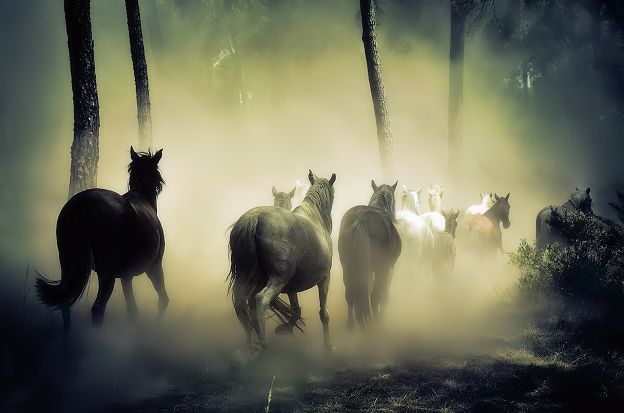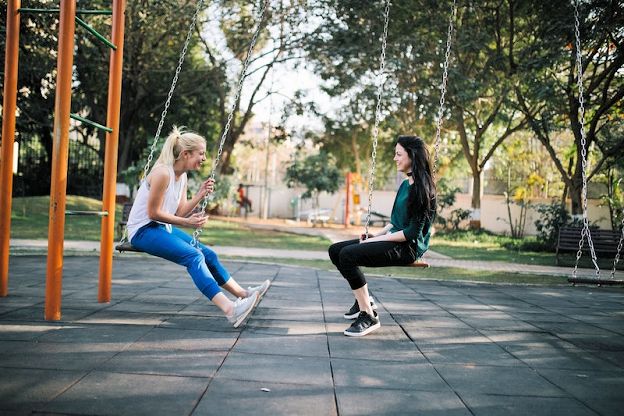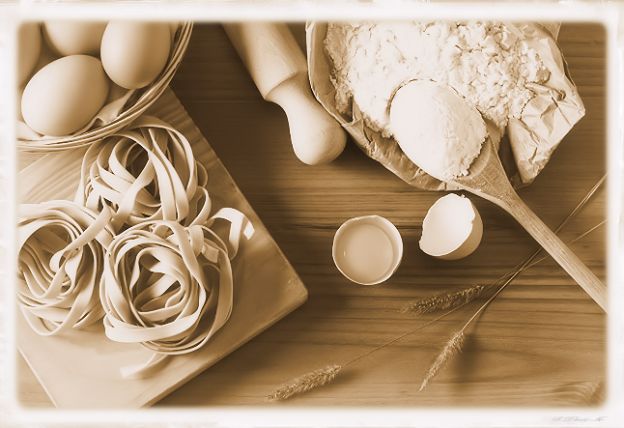
The reason it’s worth standing up for punctuation is not that it’s an arbitrary system of notation known only to an over-sensitive elite who have attacks of the vapours when they see it misapplied. The reason to stand up for punctuation is that without it there is no reliable way of communicating meaning.
Lynne Truss
A philosopher once said, ‘Half of good philosophy is good grammar.
A. P. Martinich
It’s hard to take someone seriously when they leave you a note saying, ‘Your ugly.’ My ugly what? The idiot didn’t even know the difference between your and you’re.
Cara Lynn Shultz
The greater part of the world’s troubles are due to questions and grammar.
Michel de Montaigne
People don’t talk like this, theytalklikethis. Syllables, words, sentences run together like a watercolour left in the rain. To understand what anyone is saying to us we must separate these noises into words and the words into sentences so that we might in our turn issue a stream of mixed sounds in response.
Bill Bryson
There is a satisfactory boniness about grammar which the flesh of sheer vocabulary requires before it can become a vertebrate and walk the earth.
Anthony Burgess
Grammar is the logic of speech, even as logic is the grammar of reason.
Richard C. Trench
Ill-fitting grammar are like ill-fitting shoes. You can get used to it for a bit, but then one day your toes fall off and you can’t walk to the bathroom.
Jasper Fforde
Grammar and logic free language from being at the mercy of the tone of voice.
Rosenstock Huessy
Nostalgia is like a grammar lesson: you find the present tense, but the past perfect!
Owens Lee Pomeroy
Every English poet should master the rules of grammar before he attempts to bend or break them.
Robert Graves
Do not be surprised when those who ignore the rules of grammar also ignore the law. After all, the law is just so much grammar.
Robert Brault
People who cannot distinguish between good and bad language, or who regard the distinction as unimportant, are unlikely to think carefully about anything else.
B. R. Myers
As Mario Pei wrote in his book The story of language, an essential concept of the language is that of number. We insist on defining persons and things as singular or plural. In this respect, English, which has discarded gender-terminations, retains an ending for the plural, at least for nouns. There are a few exceptions, like “deer,” “sheep,” “grouse,” which will at least serve to explain to us in what manner some other languages manage to get along without distinctive plural forms.

The ancient Indo-European languages, notably Sanskrit and Greek, as well as the Semitic tongues, had, in addition to distinctive singular and plural forms, also a dual, indicating two. This, of course, was used especially for things that come in pairs, like eyes, hands, feet. But the dual proved cumbersome to Indo-European speakers, and was generally discarded. Arabic still makes use of a dual.
Some Melanesian languages are said to possess pronoun forms indicating three and four. In some American Indian and native Australian languages, on the other hand, the grammatical distinction between singular and plural utterly fails to exist. The Sioux language has a distinctive plural only for animate beings. In Japanese a plural can be formed if it is deemed necessary, but it is seldom so deemed.
Even where the plural is used, devices for forming it are extremely diverse. Mayan simply adds the word for “they” to the singular. Many languages repeat the singular form (Bushman tu, “mouth,” tu-tu, “mouths”). Tahitian says “heapman” for “men.” A language of Burma says “dog-all” for “dogs.”
If we think it strange that a language should lack the distinction between “dog” and “dogs,” let us recall: 1) that we make no distinction between “sheep” and “sheep”; 2) that while we make the distinction in the noun or pronoun, we never make it in the adjective, and seldom in the verb; our “white dog,” “white dogs” and “I love,” “we love” seems almost as strange to a Frenchman as Japanese ko-domo, used indifferently for “child” or “children,” does to us.
The actual use of the plural form, where it definitely exists, does not always follow what seems a logical system to us. That we ourselves are not too logical in its application is illustrated by such timehonored expressions as “a six-foot pole,” “ten head of cattle,” “two dozen eggs.” Finnish and Hungarian always use the singular instead of the plural after numerals, so that a sentence like “I see five man” is natural to them. Arabic uses the plural with numerals from three to ten, the singular from eleven on. Russian has the genitive singular of the noun after two, three and four, the genitive plural from five on (“one house,” “two of house,” “five of houses”).

Plural Nouns in English: Rules and Examples
Most singular nouns are made plural by simply putting an -s at the end. There are many different rules regarding pluralization depending on what letter a noun ends in. Irregular nouns do not follow plural noun rules, so they must be memorized or looked up in the dictionary.
Plural Noun Rules
There are many plural noun rules, and because we use nouns so frequently when writing, it’s important to know all of them! The correct spelling of plurals usually depends on what letter the singular noun ends in.
Article icon
Your writing, at its best
Be the best writer in the office.
To make regular nouns plural, add s to the end.
cat – cats
house – houses
If the singular noun ends in -s, -ss, -sh, -ch, -x, or -z, add -es to the end to make it plural.
truss – trusses
bus – buses
marsh – marshes
lunch – lunches
tax – taxes
blitz – blitzes
In some cases, singular nouns ending in -s or -z, require that you double the -s or -z prior to adding the -es for pluralization.
fez – fezzes
gas –gasses (note that gases is also an acceptable, and more commonly used, spelling of this plural noun)
If the noun ends with -f or -fe, the f is often changed to -ve before adding the -s to form the plural version.
wife – wives
wolf – wolves
Exceptions:
roof – roofs
belief – beliefs
chef – chefs
chief – chiefs
If a singular noun ends in -y and the letter before the -y is a consonant, change the ending to -ies to make the noun plural.
city – cities
puppy – puppies
If the singular noun ends in -y and the letter before the -y is a vowel, simply add an -s to make it plural.
ray – rays
boy – boys
If the singular noun ends in -o, add -es to make it plural.
potato – potatoes
tomato – tomatoes

Exceptions:
photo – photos
piano – pianos
halo – halos
With the unique word volcano, you can apply the standard pluralization for words that end in -o or not. It’s your choice! Both of the following are correct:
volcanoes
volcanos
If the singular noun ends in – us, the plural ending is frequently -i.
cactus – cacti
focus – foci
If the singular noun ends in – is, the plural ending is – es.
analysis – analyses
ellipsis – ellipses
If the singular noun ends in – on, the plural ending is – a.
phenomenon – phenomena
criterion – criteria
Some nouns don’t change at all when they’re pluralized.
sheep – sheep
series – series
species – species
deer –deer
You need to see these nouns in context to identify them as singular or plural. Consider the following sentence:
Mark caught one fish, but I caught three fish.
Plural Noun Rules for Irregular Nouns
Irregular nouns follow no specific rules, so it’s best to memorize these or look up the proper pluralization in the dictionary.
child – children
goose – geese
man – men
woman – women
tooth – teeth
foot – feet
mouse – mice
person – people
Countable and uncountable nouns
It is not always obvious whether a word is countable or uncountable. Sometimes words can be countable with one meaning and uncountable with another, e.g. cold and a cold, taste and a taste, country (countryside) and a country. many uncountable nouns become countable when we are talking about kinds or varieties of things. A wine means “a kind of wine”; a sugar means “one of the class of chemicals called sugars”. Strictly speaking, we should talk about countable and uncountable uses of nouns, not about countable and uncountable nouns.
Michael swan

Countable nouns are the names of separate objects, people, ideas etc which can be counted. We can use numbers and the article a/an with countable nouns; they have plural, a cat, three cats, a newspaper two newspapers.
Uncountable (or ‘mass’) nouns are the names of materials, liquids, abstract qualities, collections and other things which we see as masses without clear boundaries, and not as separate objects. We cannot use numbers with uncountable nouns, and most are singular with no plurals. We do not normally use a/an with uncountable nouns, though there are some exceptions; water (NOT a water, two waters) wool (NOT -a-wool, -two-wools) weather (NOT a weather, two weathers) Some determiners can only be used with countable nouns (e.g. many, few); others can only be used with uncountables (e.g. much, little).
Problem cases. Usually it is easy to see whether a noun is countable or uncountable. Obviously house is normally a countable noun, and sand is not. But sometimes things are not so clear. For instance, travel and journey have very similar meanings, but travel is normally uncountable (it means ‘travelling in general’, and we do not talk about ‘a travel’), while journey is countable (a journey is one movement from one place to another). And many things can be seen both as a collection of separate elements and as a mass; some names for things of this kind are countable, while others are uncountable. Compare: Countable: bean(s), pea(s), grape(s), lentil(s), fact(s) Uncountable: rice, spaghetti, macaroni (and other pasta foods), sugar, salt, wheat, news.
English and other languages. Not all languages treat things in the same way. For example, hair can be uncountable in English, but is plural countable in many languages; grapes is a plural countable word in English, but uncountable in some other languages. Here is a list of some common words which are usually uncountable in English, but which have countable equivalents in some other languages. Corresponding countable expressions are also given.
Uncountable and Countable
accommodation – a place to live (Not an accomodation); advice – a piece of advice (Not an advice); baggage – a piece of baggage a case/trunk/bag; bread – a piece of bread a loaf/a roll; chess – a game of chess; chewing gum – a piece of chewing gum; equipment – a piece of equipment, a tool etc; furniture – a piece/article of furniture; grass – a blade of grass; information – a piece of information; knowledge – a fact; lightning – a flash of lightning; luck – a bit/stroke of luck; luggage – a piece of luggage a case/trunk/bag; money – a note, a coin, a sum; news – a piece of news; permission – —; poetry – a poem; progress – a step forward; publicity – an advertisement; research – a piece of research; rubbish – a piece of rubbish; spaghetti – a piece of spaghetti; thunder – a clap of thunder; traffic – —; travel – a journey/trip; work – a job; a piece of work.
Here you can read the full article about countable and uncountable nouns plus the case study analysis of the word Thunder.
At the following links you can also find a lot of useful and interesting English language material:
Video links to learn good English
Interactive English exercises and tests
www.daimon.org/education/english/ Lots of links
www.liveworksheets.com All languages
English Phonetic Symbols with reading examples
https://www.pppst.com/ Lots of free Ppt
http://iteslj.org/questions/ Lots of questions
www.goethe-verlag.com Lots of tests
Improving-bad-grades Article
www.perfect-english-grammar.com
https://www.daimon.org/lib/books.htm Lots of free ebooks
https://epdf.pub/en/ Lots of free ebooks
www.english-online.org.uk/exam.htm
http://www.englishmedialab.com
https://www.englishexercises.org
http://www.tuneintoenglish.com Karaoke songs
Read carefully my friends, I have written more than 10,000 original quotes in Italian, they are all available in the Daimon Club website and in my private electronic library I have something as 200,000 English quotes and thousands of books about everything, most of all classic texts on the English Language, its grammar, its vocabulary and on the main classic subjects taught at secondary school, college and university; therefore if you need something just visit The World Of English on Facebook, like the page, write me, and let me know if I may be of assistance. Bye bye and remember, stay safe, be good and if you can’t be good, at least be careful.

